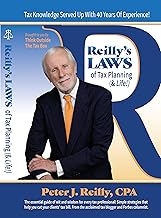The argument that high marginal tax rates will discourage economic growth strikes me as pretty compelling. I see the logic of it. There is this nagging problem, though. We’ve just had a long period of historically low marginal tax rates, high unemployment and terrible returns for ordinary investors. So I don’t really find it shocking that Thomas Hungerford, an economist for the Congressional Research Service concluded in a report that changes in the top marginal rate are uncorrelated with economic growth, although they are correlated with concentration of income at the top.
The top income tax rates have changed considerably since the end of World War II. Throughout the late-1940s and 1950s, the top marginal tax rate was typically above 90%; today it is 35%. Additionally, the top capital gains tax rate was 25% in the 1950s and 1960s, 35% in the 1970s;today it is 15%. The average tax rate faced by the top 0.01% of taxpayers was above 40% until the mid-1980s; today it is below 25%. Tax rates affecting taxpayers at the top of the income distribution are currently at their lowest levels since the end of the second World War.The results of the analysis suggest that changes over the past 65 years in the top marginal tax rate and the top capital gains tax rate do not appear correlated with economic growth. The reduction in the top tax rates appears to be uncorrelated with saving, investment, and productivity growth. The top tax rates appear to have little or no relation to the size of the economic pie. However, the top tax rate reductions appear to be associated with the increasing concentration of income at the top of the income distribution. As measured by IRS data, the share of income accruing to the top 0.1% of U.S. families increased from 4.2% in 1945 to 12.3% by 2007 before falling to 9.2% due to the 2007-2009 recession. At the same time, the average tax rate paid by the top 0.1% fell from over 50% in 1945 to about 25% in 2009. Tax policy could have a relation to how the economic pie is sliced—lower top tax rates may be associated with greater income disparities.
Seems almost heretical. So I guess it is also not shocking that the Congressional Research Service took the report down from its website. Congressman Sander Levin wrote to Mary Mazanac the CRS director on November 1 to ask why the report was taken down. Her initial response was to assure the Congressman that the report was not taken down because of Republican pressure:
I want to assure you that our decision to temporarily withdraw the report from distribution on our website was not the result of political pressure. We take very seriously our obligation to be nonpartisan and to preserve our reputation for objectivity. We would quickly lose our value as an advisor to all Members and staff if we were seen as having an agenda or bowing to partisan pressure. What is of paramount concern for us is that CRS provide the best possible research and analysis to you and to all Members.
In a follow up Congressman Levin asked:
You noted that the decision to remove the report from the website was made by you, after “discussion with Service and division management.” Was CRS ever asked by the staff of a Congressional office to retract the report?
Her response was:
You inquire whether CRS was ever asked by staff of a congressional office to retract the report. As you can understand, we cannot reveal the details of meetings we have conducted with other congressional clients. Confidentiality is one of our core values and it is essential to the viability of our close, consultative relationships with all Members and staff. CRS has never withdrawn a report solely at the direction of a Member or staff of a congressional office. We weigh carefully comments from our clients concerning our products but the decision to revise a report or withdraw it from our website is ours alone. That was the case here.
You can follow me on twitter @peterreillycpa.
Originally published on Forbes.com Nov 28th, 2012































































































